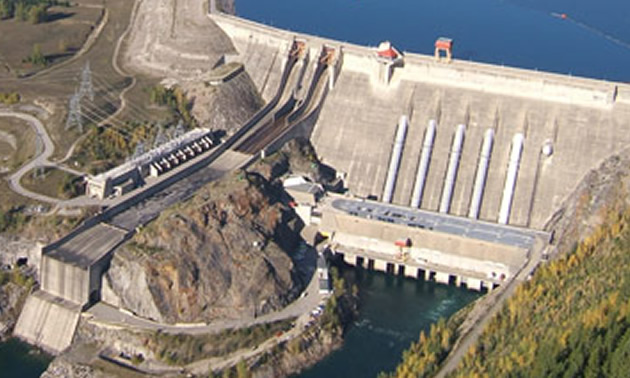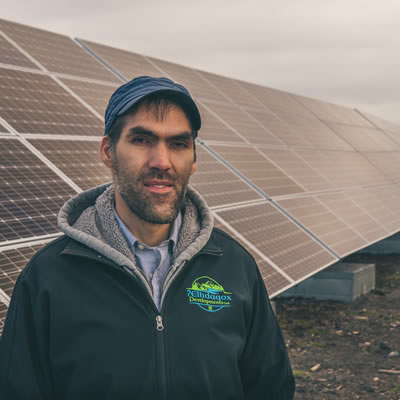BC Hydro’s internal review: cut costs and develop new revenue streams

The B.C. government is taking action to keep electricity rates affordable for customers by cutting costs and developing new revenue streams at the Crown corporation. — Photo courtesy BC Hydro
After years of rate hikes and billions in deferred costs at BC Hydro piled up by the previous government, the B.C. government is taking action to keep electricity rates affordable for customers by cutting costs and developing new revenue streams at the Crown corporation.
These actions come out of an internal review of BC Hydro. They follow news that the previous government pushed through contracts with independent power producers, beginning in the early 2000s, that will cost Hydro customers more than $16 billion over 20 years. In addition, the exponential growth of BC Hydro’s deferred debt shows that the old government continually passed BC Hydro’s financial problems on to future generations.
“The previous government made choices that put their own interests ahead of what’s best for the province and BC Hydro customers,” said Michelle Mungall, Minister of Energy, Mines and Petroleum Resources. “They ignored the professional advice, they ignored the auditor general, and they ignored the growing debt — and instead chose to make British Columbians pay the price for their choices, today and for decades to come.
“Following this review, it’s our government’s job to fix what’s broken, put BC Hydro onto a sustainable path and make sure rates stay as affordable as possible for customers.”
Mungall said that as part of making sure BC Hydro works better for customers, the government will be expanding oversight of the Crown corporation by the BC Utilities Commission (BCUC).
“Step one in fixing this problem is to take the politics out of decisions around BC Hydro — the problems we’re seeing today are the result of 16 years of political choices by the previous government,” said Mungall. “The best way to keep BC Hydro on the right financial path, while protecting the interests of customers is to enhance BCUC’s independent oversight of the Crown corporation as we move forward.”
“BC Hydro is committed to working with our customers, Indigenous peoples, stakeholders, the BCUC and government as we build on the work of the review to limit rate increases, enhance regulatory oversight and support the Province in its social, economic and environmental priorities,” said Chris O’Riley, president and chief operating officer, BC Hydro.
Affordable rates:
Subject to BCUC approval, electricity bills for ratepayers are forecast to increase by 1.8% effective April 1, 2019, and 0.7% effective April 1, 2020.
This is part of a cumulative rate increase of 8.1% over the next five years, which is:
- almost 40% lower than the 13.7% cumulative increase for the same period under the previous government’s 10-year rates plan, and
- 20% lower than the 10.7% forecast rate of B.C. inflation over the same period.
As part of transitioning to enhanced oversight, government has accepted a recommendation from the review for BC Hydro to stop using the rate-smoothing regulatory account and to write off its balance to zero in 2018-19. This will limit rate increases and relieve ratepayers of the burden of directly paying off $1.1 billion in deferred costs over the next five years.
In addition, BC Hydro will implement a number of measures that will lower costs and increase revenues, including managing future energy purchases from private power producers. This includes indefinitely suspending BC Hydro’s Standing Offer Program, effective immediately. No change will be made to electricity purchase agreements that are already signed and in place.
Recommendations to reduce costs were informed by the independent report on BC Hydro’s energy purchases from private power producers that was commissioned by the minister as part of the BC Hydro review. The report concludes that BC Hydro bought too much energy, the wrong type of energy and paid too much for it.
“Due to the decisions of the previous government, ratepayers will overpay billions of dollars for power they did not need,” said Mungall. “While costing the average household an extra $200 per year, 80% of that money did not stay in the province. This was just not a good deal for British Columbians.”
Government recognizes that many Indigenous Nation communities have seen small-scale private power as economic development opportunities. That is why the Ministry of Energy, Mines and Petroleum Resources will be engaging with Indigenous Nations to discuss the extent to which the suspension of the Standing Offer Program may affect individual Nations.
Enhanced independent oversight:
The review has identified areas where BCUC oversight is more appropriate than government oversight to ensure ratepayers’ interests are best protected.
Government intends to introduce regulatory and legislative changes to roll back past government directions that have restricted the BCUC’s oversight of BC Hydro. Under this new framework, the BCUC will make decisions on rate increases, deferral accounts and capital projects, as well as other decisions that affect British Columbians.
Government intends to return oversight of BC Hydro’s net income to the BCUC in 2021-22, following a two-year transition period to enable the BCUC to complete its review of BC Hydro’s next two-year revenue requirements application, and to undertake a process to determine an appropriate rate of return. Government also intends to restore the commission’s authority to review and approve BC Hydro’s Integrated Resource Plan, its 20-year plan to meet electricity demand, starting in 2021.
BC Hydro plays a unique role as both an electrical utility and an implementer of government policy. To minimize past policy impacts on ratepayers and the Province’s fiscal plan and advance social, economic and environmental priorities, government anticipates that, on occasion, it will be required to provide direction to the BCUC to guide decision making in proceedings that have implications for government policy.
Policy guidance could be conveyed by having the Province participate in certain BCUC proceedings as an intervener or by providing a letter of comment, or by issuing directions. In keeping with its commitment to respect the independence of the BCUC, government will limit the use of these directives as much as possible.
“Our new approach for BCUC oversight of BC Hydro is clear, fair and transparent and recognizes the importance of independent utility regulation,” said Mungall.
Looking forward:
The measures flowing from Phase 1 of the BC Hydro review will inform BC Hydro’s next revenue requirements application to the BCUC (for 2019-20 – 2021-22) to be filed in February 2019 and will allow the BCUC greater independence in reviewing the application.
During the BCUC’s review of the application, stakeholders and the public will have a further opportunity to see and comment on how the outcomes of the first phase of the comprehensive review have influenced BC Hydro’s finances and proposed electricity rates.
The Province remains committed to reconciliation with Indigenous peoples of British Columbia. The Ministry of Energy, Mines and Petroleum Resources will be engaging with Indigenous Nations to discuss the extent to which the indefinite suspension of the Standing Offer Program may affect the economic interests of individual Indigenous Nations.
Phase 2 of the BC Hydro review will begin in 2019. It will be informed by government’s CleanBC plan and focused on ensuring that BC Hydro is well positioned to maximize opportunities flowing from shifts taking place in the global and regional energy sectors, technological change and climate action.
“The problems at BC Hydro didn’t appear overnight, and they can’t be fixed overnight,” said Mungall. “We’re going to keep working to build on BC Hydro’s strengths and the skills and dedication of its workers and build a strong, sustainable and innovative BC Hydro for today and future generations.”




